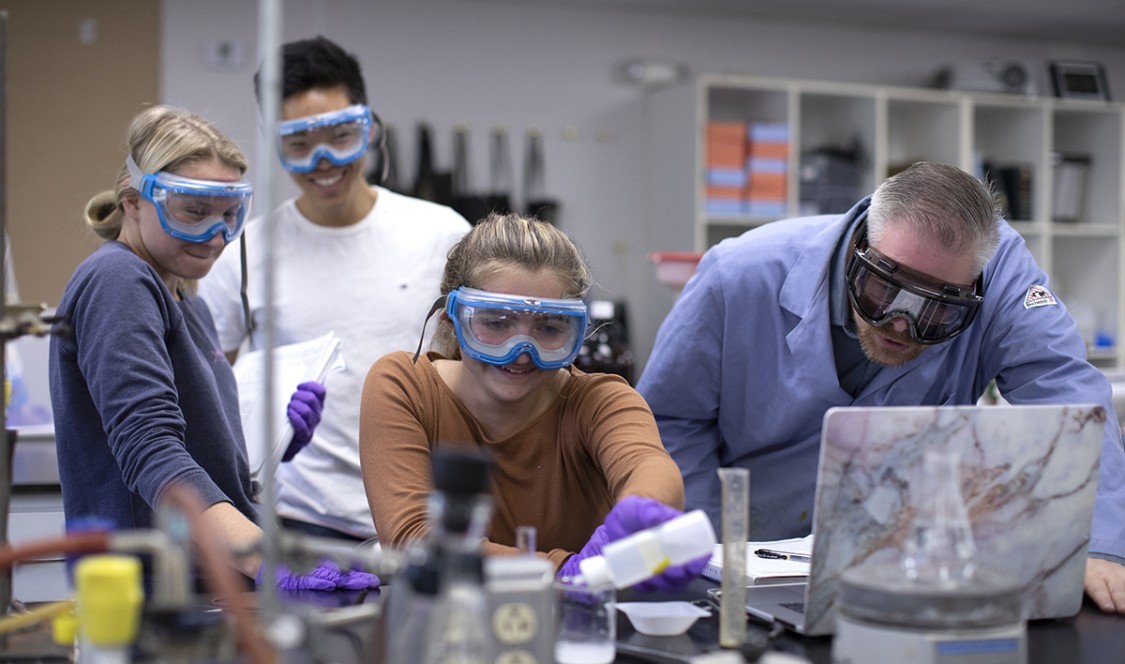Claremont McKenna College currently teaches science through a joint department with Scripps College and Pitzer College. CMC is in the process of creating its own program for integrated sciences and computation. The following questions and answers address some of the fundamental steps in the decision making process.
1. Why is CMC investing in an independent science department?
CMC’s focused educational mission is to prepare students for thoughtful and productive lives and responsible leadership in business, government, and the professions. Today, this mission requires the integration of strong science and computation education with the social sciences and humanities. Consistent with its mission, CMC has always had general education requirements in science, and many CMC students each year major in science. Class sizes and use of adjuncts at Keck Science currently exceed the norm for CMC’s academic departments. Therefore, CMC must hire more science faculty to improve class sizes and the proportion of classes taught by tenure track faculty. This requires the laboratory infrastructure to support student and faculty research and teaching. For these reasons, CMC must significantly expand integrated science facilities and programming.
CMC’s program will be a single, interdisciplinary department with a high degree of computational integration, multi-disciplinary connections to other fields of inquiry, a deep interest in the translation of scientific insight into policy and practice, and a continued emphasis on undergraduate research. Its curriculum will explore the relations between the natural sciences and their computational underpinnings, create links to government, economics, and other departments, and provide abundant curricular and co-curricular opportunities for students to apply the methods of science to research, business, or public policy.
2. How will CMC’s science department be institutionally configured?
As with other CMC departments, the CMC integrated science department will be headed by a chair. The search for the founding chair has been authorized by the CMC Board of Trustees and is currently underway. After the transition, the department is expected to be closely aligned with and complement, but not duplicate, the Keck Science program.
3. What is the timetable for withdrawal from Keck Science?
Under the Keck Science governance agreement, a college’s written notification of intent to withdraw sets in motion a three-year timetable to complete a separation. CMC’s Board of Trustees policy is to commence major building projects only after we have raised all funds for construction, building operation, and renewal and replacement, and for CMC Science, half of all funds for the program. To meet these thresholds, the College must raise an additional $180 million. Although fundraising for the program has been strong to date, the College cannot predict when it will reach the necessary threshold to provide a notice of withdrawal. Ultimately, the total investment in integrated sciences is estimated at over $350 million.
4. What will science education at the three colleges look like during the transition both before and after CMC’s notice to withdraw?
All three colleges have begun to secure new resources to strengthen science education. This means decreasing class sizes and increasing tenure track faculty, as well as enhancing support for student and faculty research. The expansion by Pitzer and Scripps of the Keck facility will break ground at the end of the year and is planned to open by Spring 2023, benefiting all students. Other CMC science hires and interim facilities to enable science expansion during the transition will commence after a notice of withdrawal. Once the transition is complete, over $450 million of total, additional science resources will be invested to expand opportunities for integrated science education at the Claremont Colleges.

